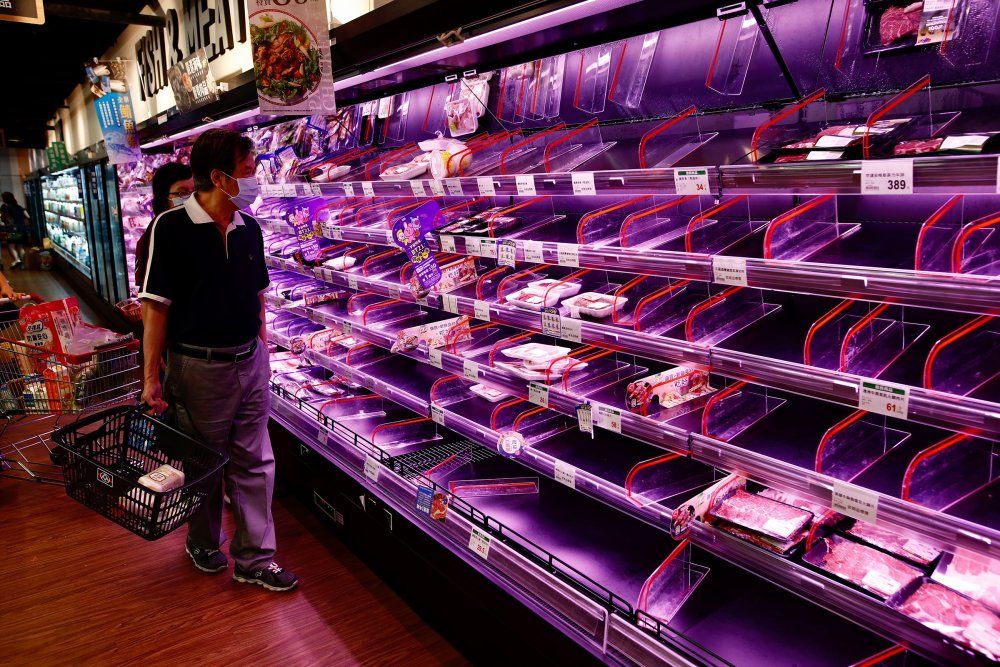HJ's critical reflections|Thinking about the epidemic: Xiao Que's sorrow
About a month ago, the Central Epidemic Command Center announced that the country had entered the third level of alert. Soon, the original post on Twitter was continuously shared and forwarded on major social platforms: "Be optimistic about the world, Taiwanese only Demonstrate one time to lift Level 3 within two weeks.” Recalling these rhetoric in recent days makes people feel embarrassed and mixed.
The authorities are fascinated by the bystanders. Since the outbreak of the local epidemic, the American Time magazine titled "How a False Sense of Security and Private Tea, How to Undermine Taiwan's Defense Against COVID-19" , using an objective and plain narrative to point out people's lax mentality and The over-touted effectiveness of epidemic prevention.
What exactly led to the emergence of the epidemic prevention breach? The author refuses to view it from an overly politicized perspective. In line with foreign media, I want to discuss it with a "false sense of security", and more importantly, I want to observe the society from a philosophical perspective, and deeply reflect on the habits of the Taiwanese behind it.

Xiao Que Xing's sense of security brings a false, superficial, unlasting peace, and it is also a humble manifestation.
Many years ago, the "Crooked Waist Postbox" was supposed to be moved out of its place, but many people opposed it on the grounds of "memory", and even celebrities endorsed it .
If we think with the same logic, public objects carry the memories of the group, then the bronze statues of primary and secondary schools are not the past of authoritarian rule and white terror in power? More than one report and research point out that the density of palaces and temples in Taiwan is far greater than that of convenience stores .
These phenomena all point to the root of the same problem: Taiwanese people's motivation to pursue small happiness and false safety consolation is far superior to rational speculation and in-depth discussion of public issues. The outbreak of local cases shows the shallow understanding of Taiwanese people. They think that the domestic epidemic situation has been relatively stable in the past six months, and they believe that the crisis has been resolved.
It is really too easy to obtain a small fortune. Human nature will never cherish something that is easily obtained. The same situation is put on the Taiwanese and it seems to be reversed. Taiwanese are kind and simple by nature, and this can be seen even more when they treat "foreigners in Europe and America".
There are problems if it is too low. Sure enough, the excessive goodness of Taiwanese people is based on their own cultural inferiority and national identity , and they refuse to think deeply about what morality is, and always live with superficial knowledge. Xiao Que Xing's sense of security brings a false, superficial, unlasting peace, and it is also a humble manifestation.
A superficial life cannot lead the public policy discussion, even the history of thought and the past and future of the nation, always scoffing at the Department of Humanities.
More often, the five words "You think too much" are uttered in a contemptuous manner, rejecting profound philosophical speculation and becoming an excuse for rejecting rational discussions , or "Why are you so serious?", "You're too busy to eat?" Their attitudes all show the habit of having a shallow view of life and arrogance towards professionalism.

Evil in the world is almost always caused by ignorance, and good intentions without knowledge can do as much damage as evil.
Today, thinking about the future of Taiwanese ethnic groups is actually a little pessimistic, because through the epidemic, I have seen too many people who are bound by emotions. Hong Kong has long been under the control of the CCP and fell, so can Taiwanese people take up this responsibility and become another democratic holy land against the dictatorship of the CCP after Hong Kong?
It must be viewed with pessimism, but this pessimism does not mean denial, but as a rational person, it is necessary to seek rigor and see social reality clearly.
Camus mentions in verse 24 of The Plague: "The upright man, that is, the man who hardly infects anyone with disease, is always careful, as undistracted as possible. Heart, you need willpower, you need to be in a state of tension.”
However, verse 16 also points out: " The evil in the world is almost always caused by ignorance, and good intentions without knowledge can cause as much damage as evil. " . But ignorance, lack of knowledge, and simplicity are only a fine line.
Taiwan is getting better, and it can definitely get better if we are willing to think.
Like my work? Don't forget to support and clap, let me know that you are with me on the road of creation. Keep this enthusiasm together!





- Author
- More